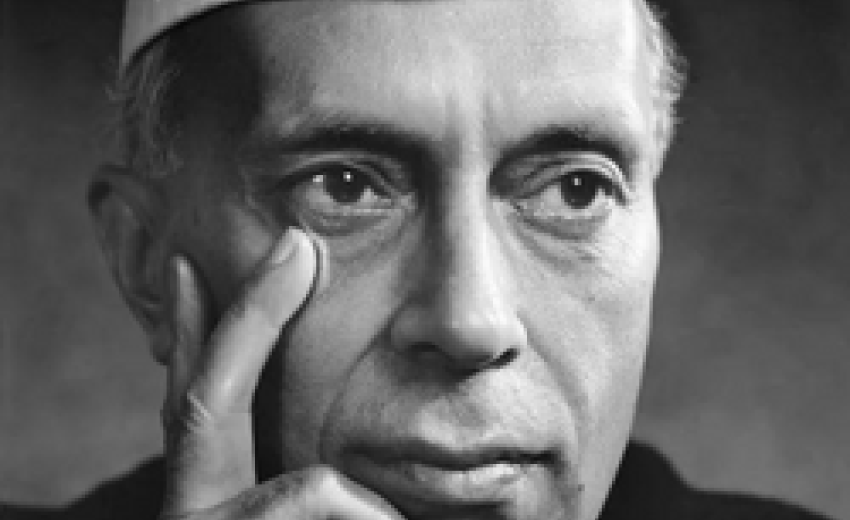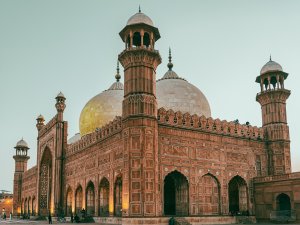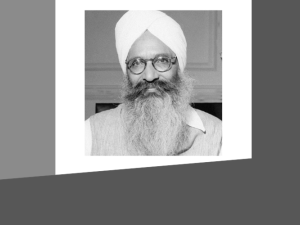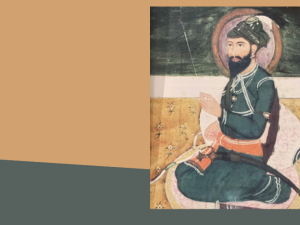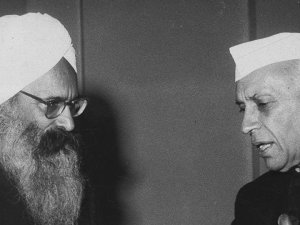Can anyone imagine Pandit Jawahar Lal Nehru, the first Prime Minister of India and a beloved of the masses par excellence being shouted down in a public meeting in independent India and in his heyday? Yes, it did happen once.
The place where it happened is Fatehgarh in Patiala District of Punjab and the day was December 27 in 1953. The unprecedented part of that tense drama is that the great Pandit Nehru left the meeting without addressing it, so peeved was he at the sudden turn of events. The moment is worth recapturing because Nehru was known to handle even the worst type of audiences like a master. Even when he bullied or slapped some of them which happened many times, the people just clapped him.
The most remarkable outcome of the first general election in India was that The Congress party led by Nehru won handsomely in the Parliament and all other states, virtually stampeding the opposition. It was only in one state named PEPSU (Patiala and East Punjab States Union) that the Congress was not only defeated but the Akali party led by Master Tara Singh won and formed the government. Sardar Gian Singh Rarewala took oath as the first non-Congress Chief Minister in any state of India on April 22, 1952. Now this was what was wholly unacceptable to the great 'democrat' that Nehru is made out to be by his biographers and chroniclers. Nehru could not tolerate his authority to rule all over India being challenged by a regional party. So on the very first pretext ( a wolf and lamb story indeed), Akali Government led by Rarewala was dismissed in March 1953. Governors' rule was clamped, using new constitutional powers. The Sikhs made a lot of protests by holding demonstrations and conferences. Even Dr. Ambedkar, the author of the Constitution spoke in the Rajya Sabha against the central order over an elected government.
Fatehgarh is the place where the two younger sons of Guru Gobind Singh were bricked alive during the time of Mughal ruler Aurangzeb on December 27,1704. Every year lakhs of Sikhs gather there to pay homage to the martyrs on 25, 26 &27 December. This takes the shape of an annual big fair. Now it is a tradition in Punjab that wherever such large congregations gather, the political parties hold conferences to propagate their points of view. Religious tradition are confined to the inner sanctum of the historic gurudwara. The elections to Pepsu Assembly were to be held in order to re-elect popular Government after completion of one year of Central rule. Therefore, the importance of the Fatehgarh fair in December 1953 became much more to the Congress as well as to the Akali Party.
In order to gain the sympathy of the Sikhs, the Congress managed through Pepsu government to invite Pandit Nehru to address the congregation inside the holy gurudwara. The Sikhs were already feeling hurt with the overthrow of their elected government by the centre. So the proposed visit of Nehru became a sort of public confrontation between the crucified and injured Akali psyche and the ruling Congress. Master Tara Singh, the leader of the Sikhs, felt that Nehru had no genuine reason to come and address a religious meeting in a gurudwara, he being secular, as he called himself. So he announced in a big public meeting on the night of December 26, 1953 that Nehru would not be allowed to speak. This was a great challenge to the authority of the State government.
Those who have seen the old gurudwara (which has now been demolished and replaced by a new one) and are familiar with its topography will vouchsafe that it was like a small fortress with only small front entrance. Outside the gate, the Akalis used to hold their public meeting and on the other side of the road, the Congress and other parties used to put up their stages. Inside the gurudwara there was also a small hall where religious discourses were held.
The large police force took over the control of entire area and since the early morning put restrictions on the entry of devotees inside the gurudwara. Mr. B.N. Rao former ICS, was the Advisor and de-facto ruler of PEPSU. He did not want to leave anything to chance. In the congregation inside the gurudwara he sent 300 policemen in mufti in order to have an undisturbed captive audience for Nehru. No Akali worker was allowed to enter the Gurdwara or stand near the entrance.
I was then a raw youth of 20 years studying in Mahindra College Patiala and also an active member of the Sikh Students Federation. I and my friends heard the decision of Master Tara Singh not to allow Nehru to speak. About 20 of us decided to enter the Gururdwara by disguising ourselves. All were successful except Bedi Gurbax Singh and I , since the police inspector monitoring the entry gate recognized us.
Pandit Nehru after alighting from the plane at Ambala motored down to Fatehgarh, a distance of about 40 miles. He was accompanied by Maharaja Yadvinder Singh, the RajPramukh of Pepsu, Mr. B.N.Rao, Col. Raghbir Singh, Brish Bhan and some other dignitaries. He got down at the outer Darshani Deori (entrance gate) and started walking towards the Gurudwara. There were many people who started shouting pro-Nehru slogans and showered flowers on him. At that moment Bedi and I jumped in and started moving in front of the dignitaries shouting slogans, 'Nehru go back', 'Master Tara Singh Zindabad'. The police was stunned but could not remove us. Nehru looked confident and unnerved as he looked towards us. In this way we could enter the Gurudwara along with his entourage.
Nehru removed his shoes outside the gate and came in and went to the dais which was hardly one foot high. A loudspeaker was already installed there. He immediately took the mike and started speaking. Hardly could he mutter any word when all of us got up and started shouting and raising slogans. Police failed to check us and we almost surrounded the front of the dais. At that moment out of sheer religious passion, one of us succeeded in snatching the mike. As this was going on Nehru stood unperturbed. Maharaja Patiala and others with folded hands beseeched us to let Nehru speak. They assured us that he (Nehru) would not make any political speech but only pay his homage to the sahibzadas. We insisted that unless Master Tara Singh was brought there and he permitted it, we would not let Nehru speak. Immediately a senior police officer escorted Master ji inside. Masterji stood in front of Nehru, defiant. Their eyes met but only for a few seconds. No word was uttered by either one of them. Immediately Pandit Nehru came down off the dais and perhaps to avoid an ugly scene, left the place. Mr. B.N. Rao in sheer depression lost consciousness and had to be bodylifted by the policemen.
As soon as the Prime Minister's party left, the police came down heavily on the Akali congregation. A severe lathi charge was made in order to teach the demonstrators a lesson. The situation became tense as people also started throwing brickbats on the police. The sheer wisdom of experience of a few senior police officials prevented the police from firing, otherwise it could have been a worse tragedy.
Soon after, the religious procession started and all people joined. We also managed to sneak into the procession to save us from the wrath of the police. The state government was humiliated and they decided to register a conspiracy case against senior leaders. Nine of us including S. Atma Singh a former Akali Minister were arrested to face the charges of attempted murder. The Fatehgarh conspiracy case went on for two years, the Deputy Commissioner and Superintendent of Police being eye witnesses. My friend Jagdeep Singh Kang and I were acquitted but the rest were sentenced to seven years imprisonment. It is interesting to note that the Akalis decided to merge en masse with Congress in 1956. In the political deal, the sentence of all the accused was condoned!
Throughout my long career in government I had to live with the stigma of being the one to have shouted down Nehru.
Tarlochan Singh.

